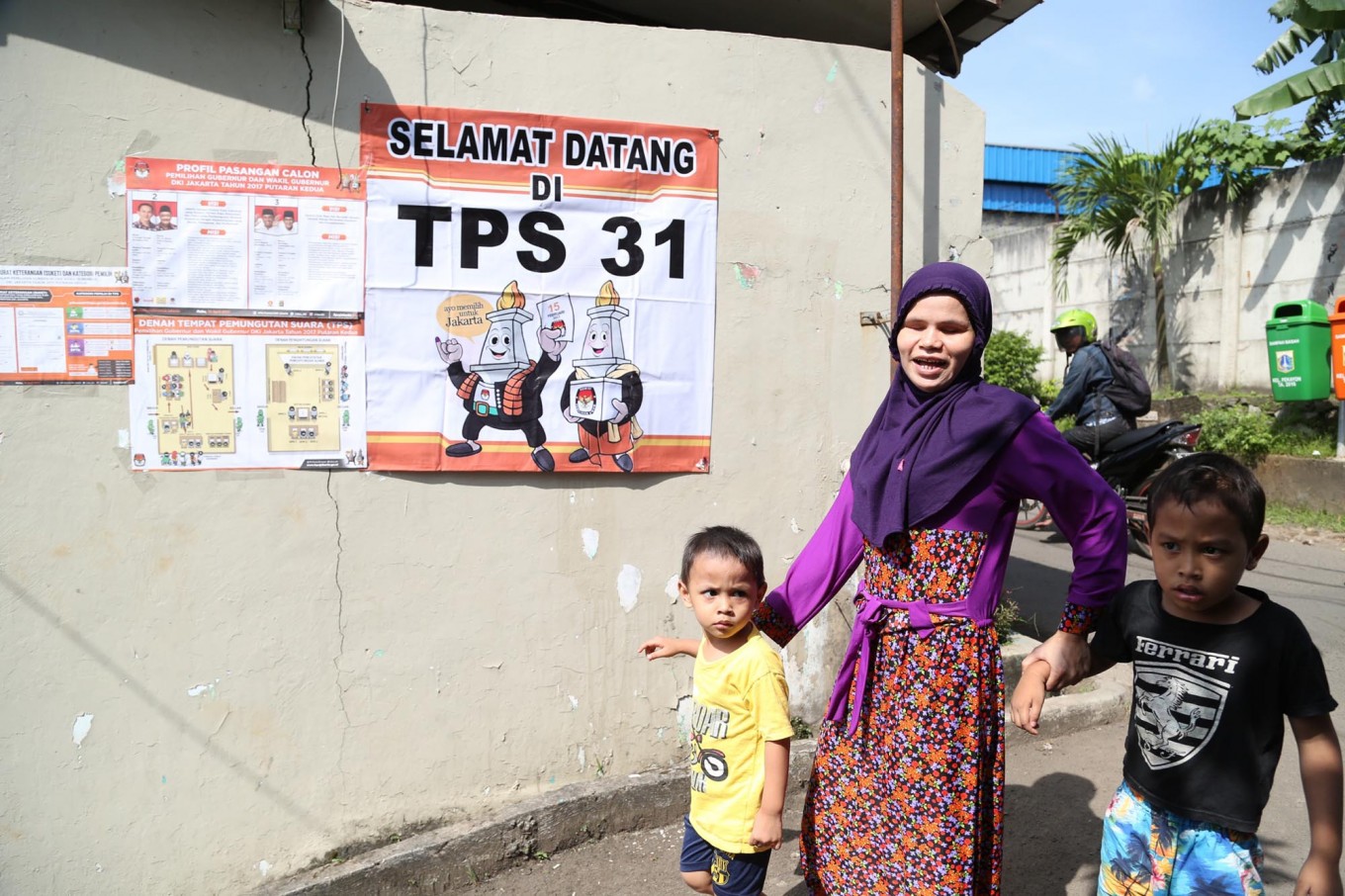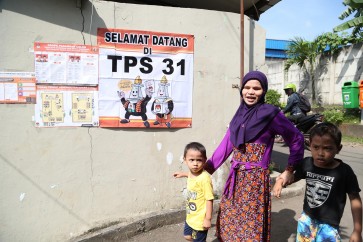Popular Reads
Top Results
Can't find what you're looking for?
View all search resultsPopular Reads
Top Results
Can't find what you're looking for?
View all search resultsINSIGHT: What went (not) right in the Jakarta election
The election season was marred by a smear campaign, invoking religious and racial sentiment.
Change text size
Gift Premium Articles
to Anyone
J
akartans had their final say after a long and exhausting election season. It is pretty much a landslide victory for Anies Baswedan, the challenger, over Basuki Tjahaja “Ahok” Purnama, the incumbent governor.
Pending the official manual counting of approximately 7 million votes, quick counts and exit polls by various pollsters have established the fact that the margin ranges between 12 to 16 percent in favor of Anies. A quick count conducted by Kompas showed Anies garnered 58 percent of the vote against Ahok’s 42 percent.
The election season, which was marred by a smear campaign, invoking religious and racial sentiment, led many to believe that ugly campaigning worked for the benefit of Anies, who had presented himself as a moderate Muslim with an international outlook throughout his academic and community development career. This is in stark contrast to Ahok, who is a double minority: a Christian of Chinese descent. Since day one of his governorship, Ahok has been faced with challenges from especially conservative Muslim groups that demanded he be removed from his position. They found a rallying call when Ahok was charged with blasphemy, which certainly hurt his reelection campaign.
The frustration among Ahok voters is understandable, but it is probably based on false assumptions. First, there was a widely held assumption that being in the capital city, with a higher level of education and relatively better income compared to other places in Indonesia, voters in Jakarta would act “rationally.”
However, research actually suggests the opposite. Karen Kauffman reported in her book The Urban Voters: Group Conflict and Mayoral Voting Behavior in American Cities (2004) that big cities were actually more prone to the mobilization of ethnic and/or religious sentiment. She found that in the past three decades, for example, New York and Los Angeles had experienced heated campaigns in every mayoral election exactly along the similar lines. The reason is that cities naturally consist of immigrants (or pendatang in the Indonesian context) who need to reaffirm their original identities from time to time.
Second, being “rational” has loosely been defined as voting based not on religious or racial lines, but rather decided by the rational examination of candidates’ performance. Certainly Ahok has a comparative advantage as an incumbent governor. He was also a former district head in Bangka Belitung. Ahok once also served as a lawmaker. In terms of governing, Anies is therefore no match for Ahok. One interesting fact prior to the balloting is that various pollsters found that the level of satisfaction toward the performance of Ahok as governor had been consistently high, hovering around almost 80 percent. Yet, his approval rating/electability has been stuck between 30 percent and 40 percent.
With this kind of assumption, being “rational” means voters would vote after carefully examining the track records of their candidates. Ahok’s team should have realized that given the fact that there had been such a significant discrepancy between the level of satisfaction and the level of electability, voters would not vote retrospectively. Emphasizing Ahok’s performance is necessary but apparently insufficient.


















